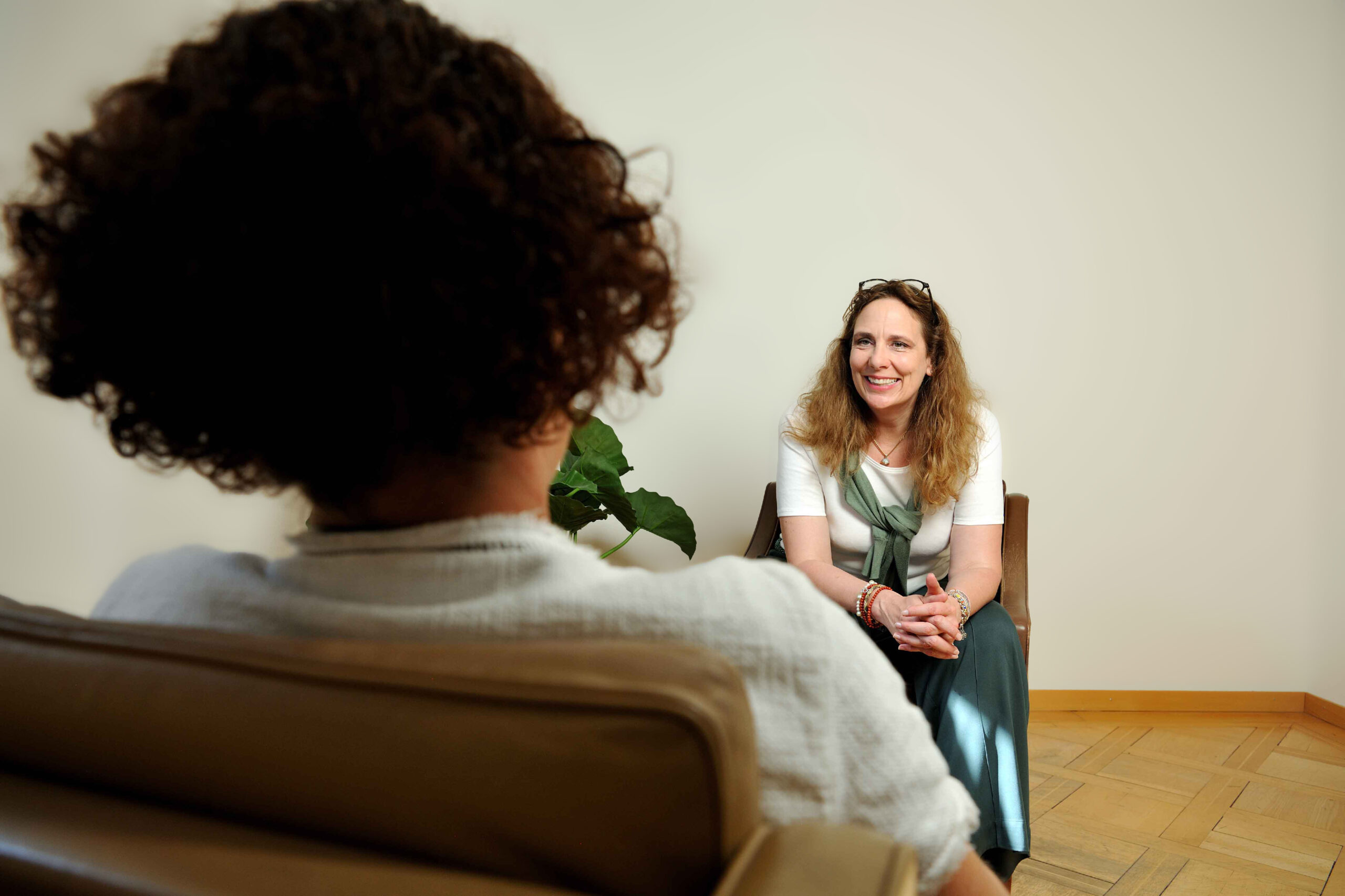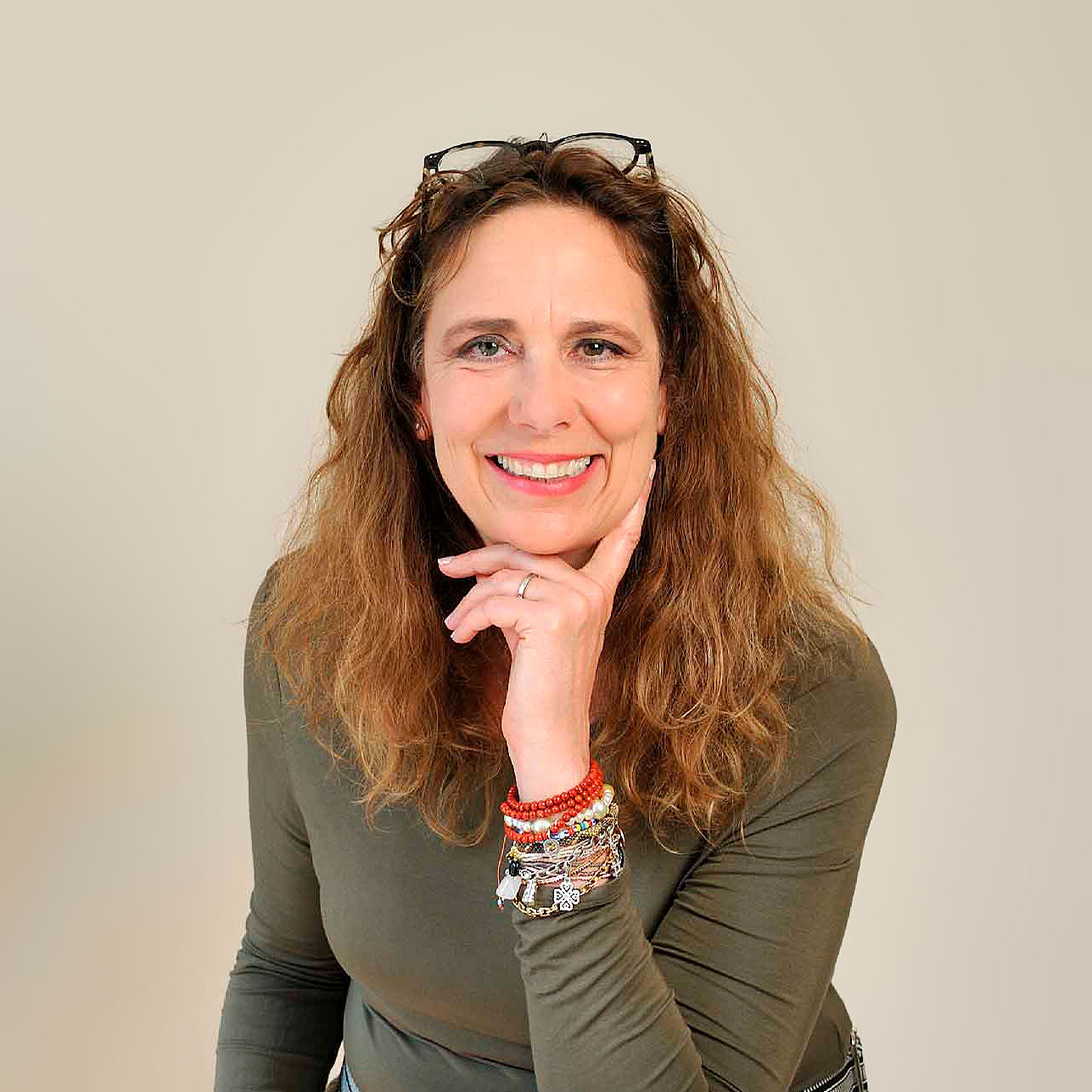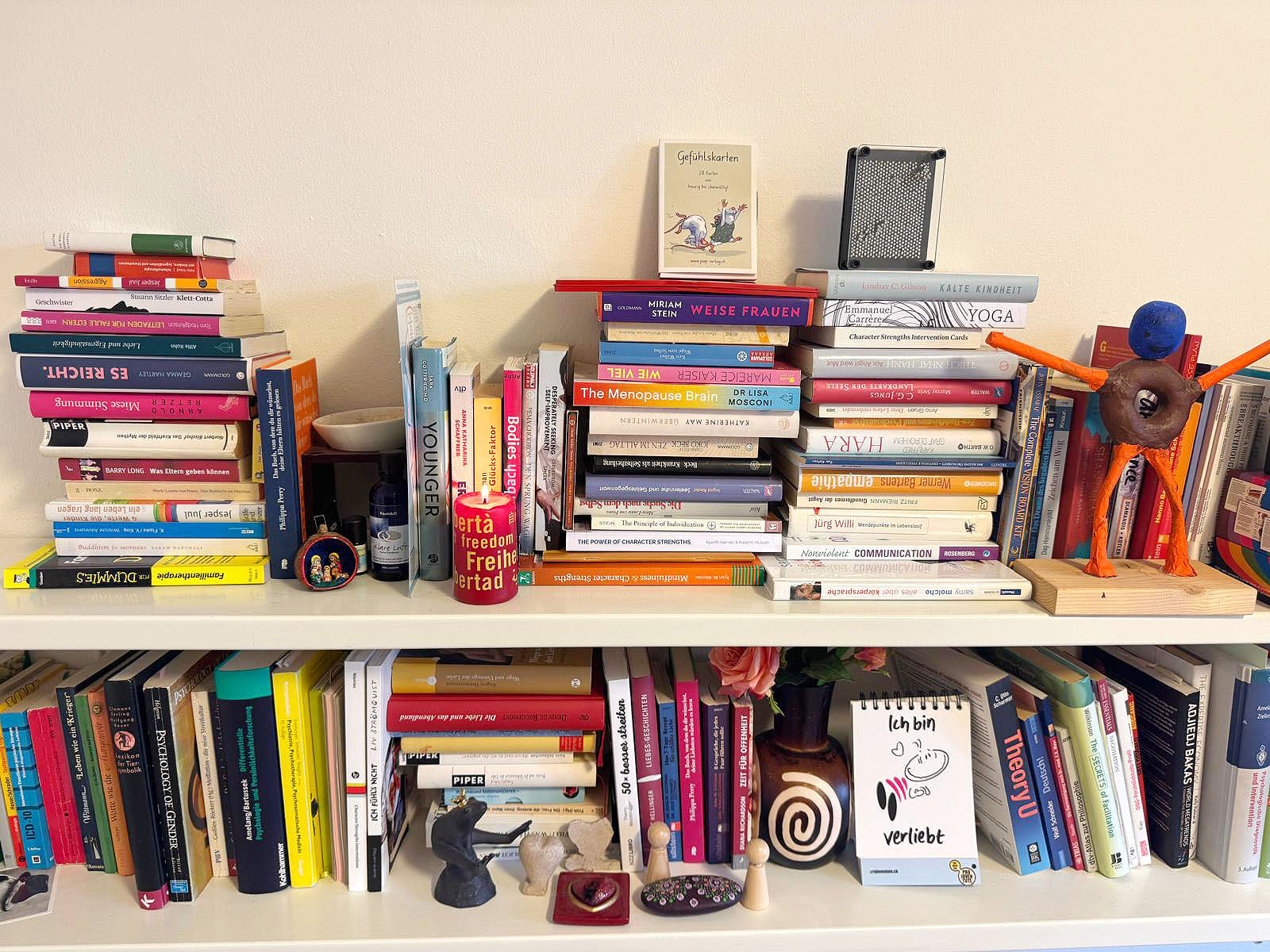How Therapy helps
I help you find your own path – with empathy, expertise, and a fine sense for what in you wants to grow and come alive. Psychotherapy is no mystery. Science knows what works – and what gets in the way.
Psychotherapy is not a mystery – research clearly shows what works and what holds us back.
When pain, overwhelm, or relationship conflicts weigh on your life, new perspectives and supportive guidance can make all the difference. Whether in individual therapy, couples therapy, or family therapy in Zurich, together we develop ways that lead to more clarity, inner calm, and joy in life.
Whether you long for personal happiness, a fulfilling partnership, or a more harmonious family life – I am at your side.
Give it a try – it’s worth it.

Why Do People Come to Therapy?
Often because they sense: I can’t go on like this.
I work with people who give a lot – in their careers, in their families, in everyday life. Outwardly, everything seems to function, yet inwardly they experience exhaustion, overwhelm, or the feeling of losing touch with themselves. Sometimes there is even the fear of sliding into burnout.
Typical questions and concerns include:
-
“In our family there is nothing but conflict.”. “My teenager withdraws – we no longer reach them.”. “Family life is exhausting us.”
-
“We hardly talk to each other anymore.”. “We argue constantly – even about the smallest things.”. “Closeness, intimacy, and affection are missing.”
-
“Everything feels too much – I’m exhausted and overwhelmed.”. “I suffer from anxiety, stress, or sleep problems.”. “I’m searching for clarity in a life crisis or midlife transition.”
Typical topics in therapy:
Common Reasons for Therapy:
Let’s find the way forward – I look forward to meeting you.
When is therapy helpful?
When Is Therapy Helpful?
I work with people in many different life situations – both professional and personal.
With an individually tailored therapeutic approach, I support you at your own pace – empathetic, structured, and solution-focused. My Therapy in Zurich offers you a safe space to meet yourself: your questions, limits, and wounds – as well as your strengths, talents, and inner resources.
I provide a protected framework where uncertainty, doubt, and longing have their place. This is how change can happen – step by step, in your own time. Together we explore your situation more deeply, develop new perspectives, take responsibility in the right measure, and expand your options for action – with the goal of rediscovering meaning, lightness, and joy in life.
I am convinced: when we understand ourselves, transformation becomes possible – and with it, new courage.
Let us find this path together – I look forward to meeting you.
Starting Therapy: What to Expect and How It Continues
In our first session, we clarify what is weighing on you, what you need, and what might help. Together, we decide which therapy format suits you best and in what rhythm.
Sessions every two weeks (60–90 minutes) are often enough. At the beginning or during more intense phases, more frequent sessions can be helpful. Some people decide right away, others take time. And sometimes a single session is enough to spark new ideas. Whether we work together is often a gut feeling – that’s exactly what the first meeting is for.
Does therapy make you happy – can happiness be learned?
Yes – happiness is no accident. Many aspects of our well-being can be deliberately strengthened.
Therapy helps to identify limiting patterns, develop self-care, and actively shape your life. Positive Psychology focuses exactly on these processes – helping you to discover your personal “happiness factors” and nurture what does you good.
Gratitude, connection, meaning, and small moments of joy can be cultivated – without any pressure to constantly optimize yourself.
Is there a right time to start therapy?
Yes – always, and never. Many people wait until the pressure becomes unbearable. That’s one way.
But you can also see therapy as an investment in your emotional immune system. Why not – as in sports or music – work with a professional to develop the skills that truly matter?
In that sense, therapy is not only a last resort, but much more a wise step to recognize patterns, strengthen resources, and set yourself up well for the future. Research on happiness and longevity is clear: people who are emotionally balanced and regularly meditate or take time for stillness live healthier, longer, and more fulfilled lives.
Don’t wait for burnout. Once the soul breaks down, the road back is often long.
What role do language and cultural background play in therapy?
Language is more than communication – it carries our deepest experiences, our origins, and our emotions. We often think, dream, and remember most vividly in our mother tongue.
That’s why it can be significant for therapy whether you can express yourself in your emotional language – or whether you must search for words in a foreign language.
Cultural roots and life circumstances shape how we view family, relationships, identity, shame, guilt, or emotional openness. What’s normal in one culture can seem strange in another. Everyday conditions – financial, social, emotional – also influence how much space we have for personal growth.
Those under existential pressure, experiencing chronic stress, or carrying social inequality (even across generations) often see themselves and the world through a very different lens.
It helps when a therapist – like me – has lived and worked in different cultures, speaks multiple languages fluently, and understands different realities not just in theory, but from lived experience. This diversity of perspective allows me to meet people without clichés or quick judgments.
My background – where I learned my craft
I work integrative – having first studied economics, then psychology, and worked in both the financial industry and clinical settings. This life experience is essential to my work.
Alongside it, I have solid therapeutic training:
- Cognitive Behavioral Therapy (CBT) – for concrete changes in daily life: solution-focused, structured, step-by-step.
- Positive Psychology – to strengthen resources and sustainable life satisfaction.
- Analytical Psychology (C.G. Jung) – to recognize and integrate unconscious patterns, inner images, and biographical influences.
- Additional training in familylab (Jesper Juul), Lovelab (Gottman), Buddhist Psychology, Art Therapy, and other humanistic and body-oriented approaches.


Ready to begin your journey?
Reach out to me and letʼs explore the next step by arranging your first appointment.
General Questions About Therapy
How do I know if a therapist is a good fit – and does my approach suit you?
Trust and gut feeling are essential – as is solid expertise. My thorough psychotherapeutic training, combined with over 50 years of life experience, offers you a strong foundation of trust. Whether we are a good fit is something we clarify in the first session.
Do I need a coach or a therapist?
With me, you don’t have to choose – I am a trained psychotherapist with many years of experience as an executive coach.
Coaching is in demand – for careers, relationships, or personal development. And yes: good coaching can bring clarity and help you take action. But some issues run deeper. When conflicts repeat, pressure doesn’t ease, or relationships keep breaking down, a new mindset, self-help tips, or a smart question often aren’t enough.
That’s when more than tools or behavioral advice is needed – that’s when therapeutic depth matters. Psychotherapists learn this after a degree in psychology through many years of intensive training, self-reflection, and clinical practice.
My approach combines both:
- Coaching when clarity and implementation are the focus
- Therapy when it’s about deep-seated patterns, old wounds, and true inner development
Because changing behavior alone is not enough if the root cause remains untouched. You can find a more detailed answer in my blog post on this topic.
How much does a session cost? How long does therapy last?
It’s individual – some issues resolve in just a few sessions, others take more time. Six months can already bring significant change.
I work with self-paying clients.
I’m happy to share the exact cost with you personally – it’s about the same as a nice dinner for two.
Is therapy confidential?
Yes. As a therapist, I am bound by confidentiality. Your concerns remain fully protected.

